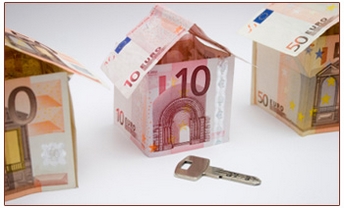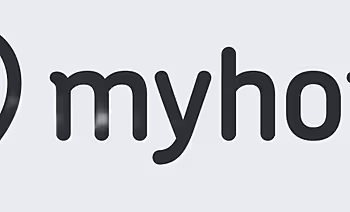Surely this couldn't be? Everybody knows house prices are dropping right?
True, but if you are not a cash buyer (and of the increasing stock of cash buyers almost none of them are first time buyers) you'll need a loan and that is where things get more expensive.
This is a good example of the difference between the price of something and the cost of something. The price is what you pay to acquire a good (in our case a house), the cost is the sum of value of inputs into production (in our case the money put into paying for the property). To put that in plain English: the price of a house is one thing, the monthly repayments are the cost and factors of that cost are many, the mortgage, insurances, upkeep, and of course taxation.
Mortgage rates have been rising, to the point that the Central Bank has thought it prudent to threaten an intervention if banks increase variable rates. We are of the opinion that borrowing in 2012 will be at higher rates, when there is a scarcity of credit the natural inclination is for price to go up.
Insurance prices may rise and fall but are typically not a make or break factor, with some such as mortgage protection normally coming at a fixed price at the outset of the loan. Upkeep is getting cheaper as both materials and tradesmen prices come down.
Which leaves taxation.
Good old' evil taxation – but in the case of property purchases for first time buyers it isn't so evil, in fact it is perhaps too generous, but that is set to drop substantially after this year and end in 2017, its called 'Tax Relief at Source' or TRS.
Currently you can get up to €10,000 in interest applied at a rate of 25% for the first two years in relief (we'll give an example of a couple buying together to demonstrate this), this goes to 22.5% for the next two years then 20%, and the scheme ends in 2017.
So we'll hypothetically buy a 3 bed semi for €200,000 today at a 4.4% three year fixed rate over 30 years and a loan amount of €180,000 (90%). We'll take the same place next year at a price 8% below this and where rates have gone up 0.4% and compare the two costs*.
Example 1:
Monthly mortgage: €901 per month.
TRS under 2011 rules: €180,000 x4.4% = €7920
€7920 is your annual interest on this loan, meaning about €660 of your €901 payment doesn't go towards reducing your debt, it is dead money in a sense. But you do get 25% of this applied as a relief (€1980) or €165 per month.
Net cost after TRS = €901 - €165 = €736.
So for the first two years the monthly cost will be €736 before insurances and upkeep.
Example 2:
€200,000 – 8% (16,000) = €184,000 purchase price
Loan: (90%) €165,600, rate 4.8%
Monthly mortgage: €869 per month.
TRS in 2012 changes to a 15% rate on the first €3,000 in interest
So our couple pay €7948 in interst for the year but only €6000 of that (€3000 limit times two)
can be used to calculate TRS at 15% = €900 a year or a mere €75 per month.
Net cost after TRS = €869 - €75 = €794 per month
And there you have it, a cheaper property that actually costs more every month! This difference in taxation will have a strong impact on cashflow, in the example of a single person buying it is even greater.
This is no endorsement to run out and buy a property, but it is notice of an important factor in the difference between price and cost, as well as showing how cost will change a lot between 2011 and 2012 perhaps as much as prices will.
We hope you continue to crunch numbers with us, we'll be here every week through to 2012!
Karl Deeter
You can find Karl on twitter @KarlDeeter
*this calculation doesn't factor in years 3 – 30 because once off the fixed rate future rates apply to both loans and the one with the higher balance will be more expensive (the first property), but to weigh the gain in the near term versus that saving in the future is difficult to model without endless assumptions on inflation and interest rates, as well as creating present values in year 27 – 30 where buyer 2 still has a loan and buyer 1 is mortgage free. What we are doing is making the case for understanding the value of a tax break.






